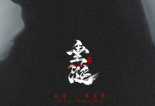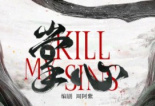Episode 1
The date of April 22, 1851 obviously does not match the War to Resist US Aggression and Aid Korea. This should be an error. We will correct it to the actual time background of the War to Resist US Aggression and Aid Korea.Assuming that the correct date is a certain month and day in 1951, the following is the rewritten content:

In the spring of 1951, the smoke of the fifth battle to resist U.S. aggression and aid Korea had not yet cleared. After a month of fierce fighting, the 15th Army of the Volunteer Army was ordered to move to the Jinhua area for rest and recuperation.At the same time, the Volunteer Army Headquarters issued a notification to all corps and military headquarters.However, during the transfer, the Fifteenth Army unfortunately encountered a U.S. air strike. The bombing resulted in more than ten people being seriously injured, more than twenty people slightly injured, and some supplies and vehicles were blown up.
Faced with the sudden attack, Chief of Staff Duan Xianfeng wanted to counterattack with machine guns, but the enemy aircraft was too far away and very fast. In addition, the equipment gap between the two sides was huge, so the counterattack failed.Subsequently, all officers and soldiers acted quickly to move out the damaged materials, and under the leadership of Army Commander Qin Jiwei, pushed the scrapped vehicles down the cliff and cleared the road.Immediately afterwards, Qin Jiwei convened an emergency meeting of staff to discuss follow-up action plans.
At this time, the U.S. military had taken the opportunity to break through the junction of the Volunteer Army's 3rd Corps and the 19th Corps, and drove straight in. It advanced hundreds of kilometers in just three days, causing the central front to fall into chaos and posing a serious threat to the Eastern Front Corps..Faced with this severe situation, while Ma Gang and others were considering retreat, Duan Xianfeng put forward the suggestion of fighting a blocking battle in Shibaura.He believed that if the Fifteenth Army retreated, the Eastern Front Corps would be passive.Qin Jiwei deeply agrees with this.
In the Kongsi Cave where the Volunteer Army Headquarters is located, Commander-in-Chief Peng Dehuai ordered Deng Hua to send a telegram to Qin Jiwei, requesting the 15th Army to garrison Zhipuri and hold off the enemy for seven days.Almost at the same time, Chief of Staff Zhang Yunyu also brought a telegram from Peng Dehuai, which made Qin Jiwei even more excited.He immediately decided that even if only the last person was left, he would hold on for more than ten days and call back to the headquarters for confirmation.
After receiving the order, the soldiers of the 15th Army quickly prepared for battle.The third company commander Feng Baisheng was full of expectations for the upcoming battle, while Qin Jiwei promptly corrected his previous wrong approach of counterattacking enemy planes, emphasizing that he should wait for the enemy planes to fly at low altitude before shooting.
Hu Mancang, the instructor of the Eighth Company, inspired the fighting spirit of the soldiers with his short and powerful words. Qin Jiwei was confident in the combat effectiveness of the Eighth Company and handed over important tasks to them.Hu Mancang accepted the task with confidence and introduced Chai Yunzhen, the seventh squad leader with outstanding marksmanship, as the leading machine gunner.
The Battle of Shibauri Park Dalbong broke out immediately, but the battle quickly reached a stalemate.The U.S. military relied on its road advantages and powerful reinforcements to put tremendous pressure on the Lao Eighth Company.Duan Xianfeng proposed to learn from Ren Qiaoji's combat experience to deal with it, and took the initiative to invite Ying to join the battle.After getting approval, he carefully deployed the combat plan and decided to divide his troops into two groups: one group to reinforce Park Dalfeng's Eighth Company, and the other group to block the 215th and other highlands on Park Dalfeng's flank to reduce the pressure on the Eighth Company.
Although Feng Baisheng was initially dubious about Duan Xianfeng's plan, after adding a platoon for support, he chose to trust and execute the order.Qin Jiwei also adjusted his deployment in time according to changes in the battle situation, and ordered Duan Xianfeng to leave a platoon of troops to guard Highland 327, and the remaining troops to fully reinforce Park Dafeng.
In the fierce battle, the soldiers suffered heavy casualties.Chai Yunzhen died heroically to protect Hu Mancang, but the Lao Eighth Company finally managed to hold on for ten days with its strong will and firm belief.Their heroic resistance not only shattered the US military's attempt to cut off the Volunteer Army on the Eastern Front, but also provided a strong guarantee for the strategic mission of the large force and made a huge contribution to the overall retreat and recuperation of the Volunteer Army.
Subsequently, “United Nations Forces” began negotiations with us.Our delegation consisted of Deputy Commander Deng Hua, Chief of Staff Jie Fang and others. North Korea also sent representatives such as Nan Ri and Zhang Pingshan.We insist on a ceasefire using the 38th Parallel as the military demarcation line, and require the other side to withdraw all peripheral troops in a timely manner.However, the other party showed no sincerity and kept making unreasonable demands.
The entourage Mo Yuan analyzed the opponent's character traits by sketching the portrait of the US Navy vice admiral and deduced his intention to delay the negotiation.Faced with the opponent's machinations, Li Kenong, the head of the North Korea-China negotiating delegation, was not afraid. He knew that the Chinese people have thousands of years of historical and cultural heritage and a persevering national spirit.He ordered members of the delegation to remain calm and patient in a battle of wits and courage with the United States.
On December 28 of the same year, the armistice negotiations were terminated due to the provocation and trouble caused by the United States in the negotiation zone.In March 1952, Commander-in-Chief Peng Dehuai once again emphasized the importance of battlefield struggle at the Volunteer Army Headquarters in Hicang.He pointed out that the US military's ambition cannot be solved by negotiation alone.He ordered Qin Jiwei to lead the 15th Army to the Five Sacred Mountains, Dongfang Mountain, and Douliufeng areas to take over the defense tasks of the 26th Army. He especially emphasized that the Five Sacred Mountains are an important gateway to central Korea, and if they fail, the consequences will be disastrous.









